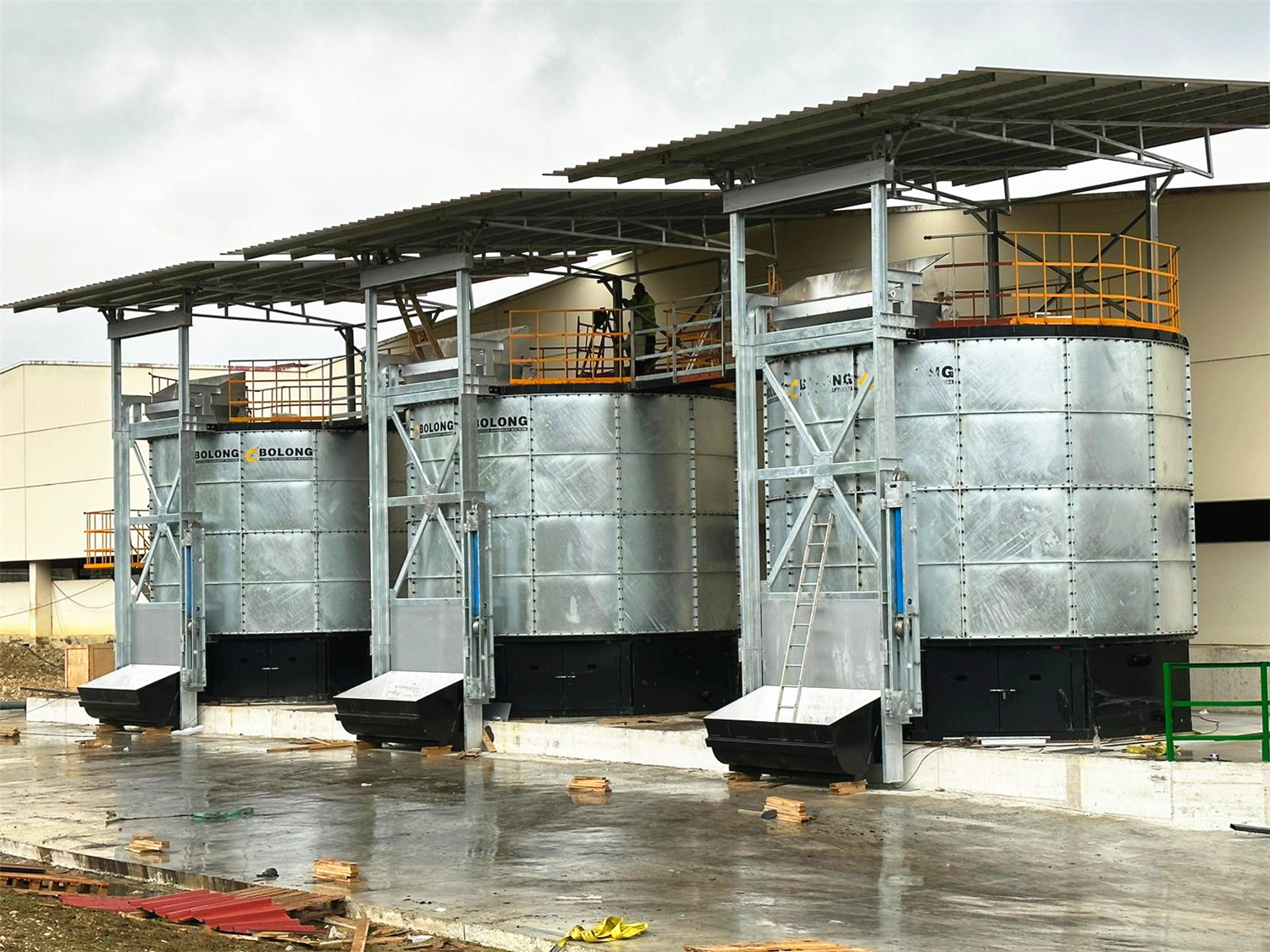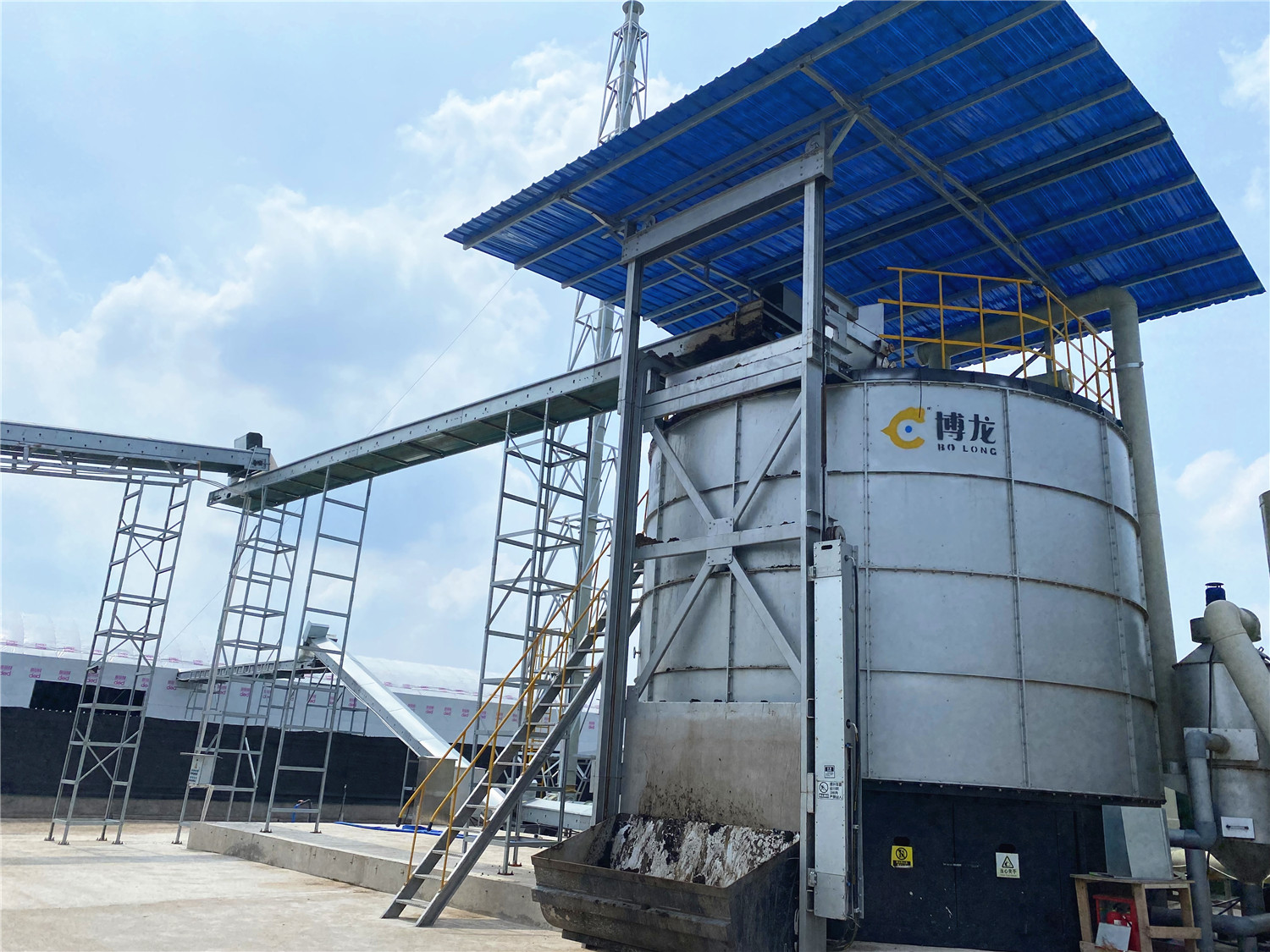An organic fertilizer fermentation tank is a device that converts organic solid waste into organic fertilizer through aerobic fermentation of microorganisms in a closed container. It utilizes the decomposition of microorganisms in nature, matures the materials through high temperature and microbial activity, kills harmful substances and reduces the moisture content and volume of the materials.
The working principle of the organic fertilizer fermentation tank is to deliver oxygen to the materials in the tank through a vortex air pump, and continuously turn the materials under the action of the stirring shaft to maintain the activity of aerobic bacteria. These microorganisms will gradually heat up to 50-65 degrees, and after about 7 days of high-temperature fermentation, they will effectively kill insect eggs, pathogens and weed seeds, and reach the standards of harmless and reduced treatment. The entire fermentation process is highly automated, which reduces manual operation links and improves production efficiency.

In terms of operation methods, organic fertilizer fermentation tanks usually include three steps: loading, high-temperature fermentation, and discharging. First, the organic waste to be fermented is mixed with microbial agents in proportion and then put into the fermentation tank; then, high-temperature fermentation is carried out under appropriate temperature and humidity conditions; finally, after a certain period of fermentation (about 7 days), the raw materials are converted into organic fertilizer and discharged.
1.Improve fertilizer quality
Organic fertilizer fermentation tanks can fully ferment organic waste. Due to the full role of microorganisms during the fermentation process, the organic fertilizer produced has high stability, and it is not prone to decomposition or deterioration, and is rich in nutrients, which helps to increase crop yields and quality.
2.Promote resource utilization
By using organic fertilizer fermentation tanks, organic wastes such as livestock and poultry manure, plant straws, etc. can be converted into organic fertilizers to achieve resource recycling. This conversion process not only improves resource utilization, but also significantly reduces the impact of these wastes on environmental pollution.
3.High applicability
Organic fertilizer fermentation tanks are suitable for the treatment of a variety of organic wastes, and have wide applicability. Whether in high latitudes or low latitudes, organic fertilizer fermentation tanks can operate normally and are not restricted by climate conditions.
4.Improve environmental performance
It is made of a fully enclosed structure, which effectively solves the problem of odor leakage and improves the environmental performance of the equipment. Moreover, the closed structure avoids the invasion of external pollutants and effectively prevents the occurrence of pests and diseases.
5.Reduce production costs
On-site treatment of organic waste reduces transportation costs; fermented organic fertilizers can improve the quality and yield of agricultural products and increase farmers’ economic benefits.

Organic fertilizer fermentation tanks play an important role in modern agricultural production, and their application scenarios are wide and diverse. It can not only convert organic waste into high-efficiency fertilizers, but also improve soil quality, increase crop yields and protect the environment.
1.Organic fertilizer fermentation tanks can effectively treat a variety of organic wastes such as kitchen waste and crop residues, convert them into organic fertilizers, and reduce environmental pollution.
2.Farms and ranches can use fermentation tanks to convert livestock manure and crop residues into organic fertilizers. By applying organic fertilizers, the soil compaction problem caused by long-term use of chemical fertilizers can be improved, and the natural fertility and microbial activity of the soil can be restored. These organic fertilizers are used to grow vegetables and fruits, improve the quality of agricultural products, and reduce production costs.
3.In the process of treating organic waste, biogas is generated, which can be used as clean energy in power generation, heating and other fields, helping to alleviate energy pressure.
In general, as an important environmental protection equipment, organic fertilizer fermentation tank is beneficial to the development of agriculture and animal husbandry. In the pursuit of sustainable development today, organic fertilizer fermentation tank will play its advantages in more fields.